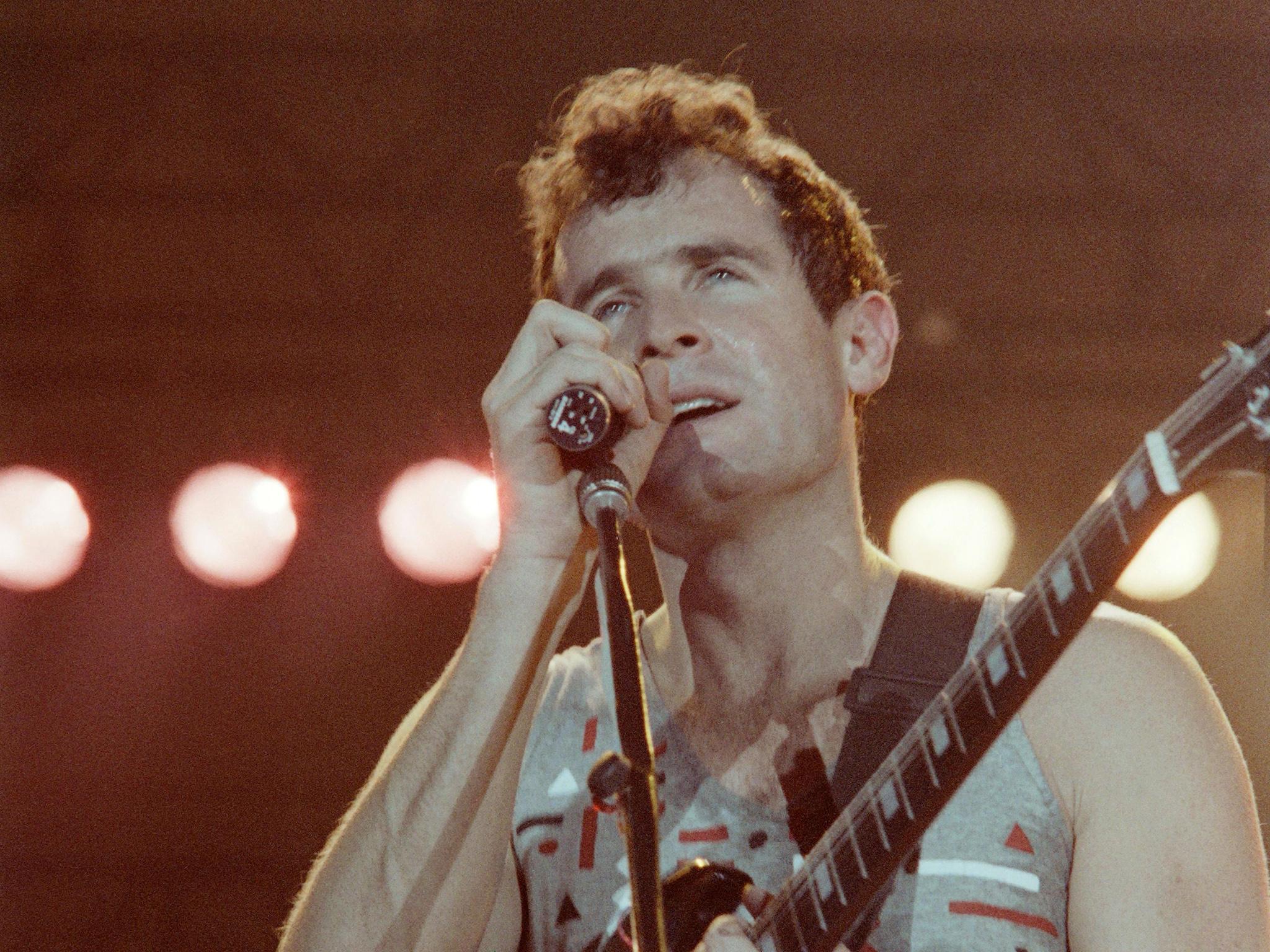Johnny Clegg: South African singer whose cross-cultural music was a direct challenge to apartheid
Clegg’s multiracial bands gained international recognition and he was an articulate voice for a peaceful, integrated nation

Your support helps us to tell the story
From reproductive rights to climate change to Big Tech, The Independent is on the ground when the story is developing. Whether it's investigating the financials of Elon Musk's pro-Trump PAC or producing our latest documentary, 'The A Word', which shines a light on the American women fighting for reproductive rights, we know how important it is to parse out the facts from the messaging.
At such a critical moment in US history, we need reporters on the ground. Your donation allows us to keep sending journalists to speak to both sides of the story.
The Independent is trusted by Americans across the entire political spectrum. And unlike many other quality news outlets, we choose not to lock Americans out of our reporting and analysis with paywalls. We believe quality journalism should be available to everyone, paid for by those who can afford it.
Your support makes all the difference.Johnny Clegg was a white South African musician who dared to cross the racial divide to create and perform music with black musicians at the height of apartheid. Despite running up against the authorities, he was able to build a loyal following at home and then worldwide.
Clegg, who has died of pancreatic cancer aged 66, looked set to gain international stardom with his fusion of Zulu and pop music at the close of the 1980s. It was not to be and his star dimmed in the 1990s, but he was honoured as a national hero in post-apartheid South Africa.
Jonathan Paul Clegg was born in Bacup, Lancashire, to an English father and Rhodesian Jewish mother. His parents divorced when he was an infant and his mother took Clegg to Southern Rhodesia (now Zimbabwe) and then, aged six, to South Africa where they settled in Johannesburg. Clegg quickly became fascinated by the Zulu people he encountered – as workers, cleaners, maids and servants – and found their music and dance enchanting.
Inevitably, this crossing the tracks found Clegg in trouble with the authorities and he was first arrested aged 15 for violating apartheid laws that banned people of different races from congregating. Aged 17 he met Sipho Mchunu, a Zulu migrant worker who would act as Clegg’s musical mentor. By his late teens Clegg had learnt to speak the Zulu language, play guitar in their maskandi style and emulate the isishameni dances performed by Zulu men.
Clegg and Mchunu called their musical partnership Juluka and they began attracting attention in the 1970s. At the same time, Clegg pursued an academic career as a social anthropologist, writing and lecturing on Zulu music and dance at South African universities. Alongside his academic career, Clegg developed Juluka into a six-piece band with three black and three white musicians. They released their debut album Universal Man in 1979, their music a mix of Zulu melodies and rhythms mixed with western pop-rock.
While Juluka’s songs were not political in the conventional protest sense, their very existence proved to be a political act and they were forced to perform at universities, churches and private spaces as the government ensured they were not allowed access to radio play and state-owned venues. Inevitably, Juluka concerts were forcibly closed and band members arrested, yet they won a strong following amongst liberal South Africans and were allowed to tour internationally, performing in North America and Europe.
Juluka broke up in 1985 and, a year later, Clegg formed Savuka, again mixing three black and three white musicians. Savuka continued the blend of Zulu melodies, harmonies and dance within a pop-rock format – songs were sung in English and Zulu – and, as the western world paid more attention to the struggle against apartheid, the band developed a wide following with Clegg being seen as a spokesperson of sorts.

Savuka’s 1987 song “Asimbonanga” contained dedications to Nelson Mandela and Steve Biko, ensuring the South African authorities increased their harassment of the band. The British Musicians Union, in a fit of pique, expelled Clegg when he refused to stop performing in South Africa.
In 1988 Savuka were on tour in Europe when the Nelson Mandela 70th Birthday Tribute Concert took place at Wembley yet, being South African, they were barred from performing (due to the cultural boycott then in force). Throughout Clegg remained an articulate, unrhetorical voice of reason, always espousing his belief in a peaceful, racially integrated South Africa, and Savuka’s international prominence grew, with the band being especially popular in France.
In 1992 the band’s percussionist Dudu Zulu was murdered while trying to mediate a dispute between rival taxi companies. Their 1993 album Heat, Dust and Dreams, received wide acclaim and a Grammy nomination for Best World Music Album but it failed to sell in large numbers – Clegg’s talent was stronger as a performer than songwriter. When Capitol Records ended the band’s contract, Clegg chose to disband Savuka.
All this happened against the background of the end of apartheid and the election of Nelson Mandela as president of South Africa. Clegg had played a part in this victory and, over the following decades, he would continue to record, perform and tour internationally. During a 1999 concert Clegg was joined onstage by Mandela, who danced as Clegg sang “Asimbonanga”.
Clegg received many honours across his lifetime, beginning with the Legion of Honour from the French government in 1991, the Order of Ikhamanga (the highest honour a South African citizen can receive) in 2012 and an OBE in 2015.
He is survived by his wife Jenny and two sons, one of whom is the musician Jesse Clegg.
Johnny Clegg: singer and campaigner, born 7 June 1953, died 16 July 2019
Join our commenting forum
Join thought-provoking conversations, follow other Independent readers and see their replies
Comments